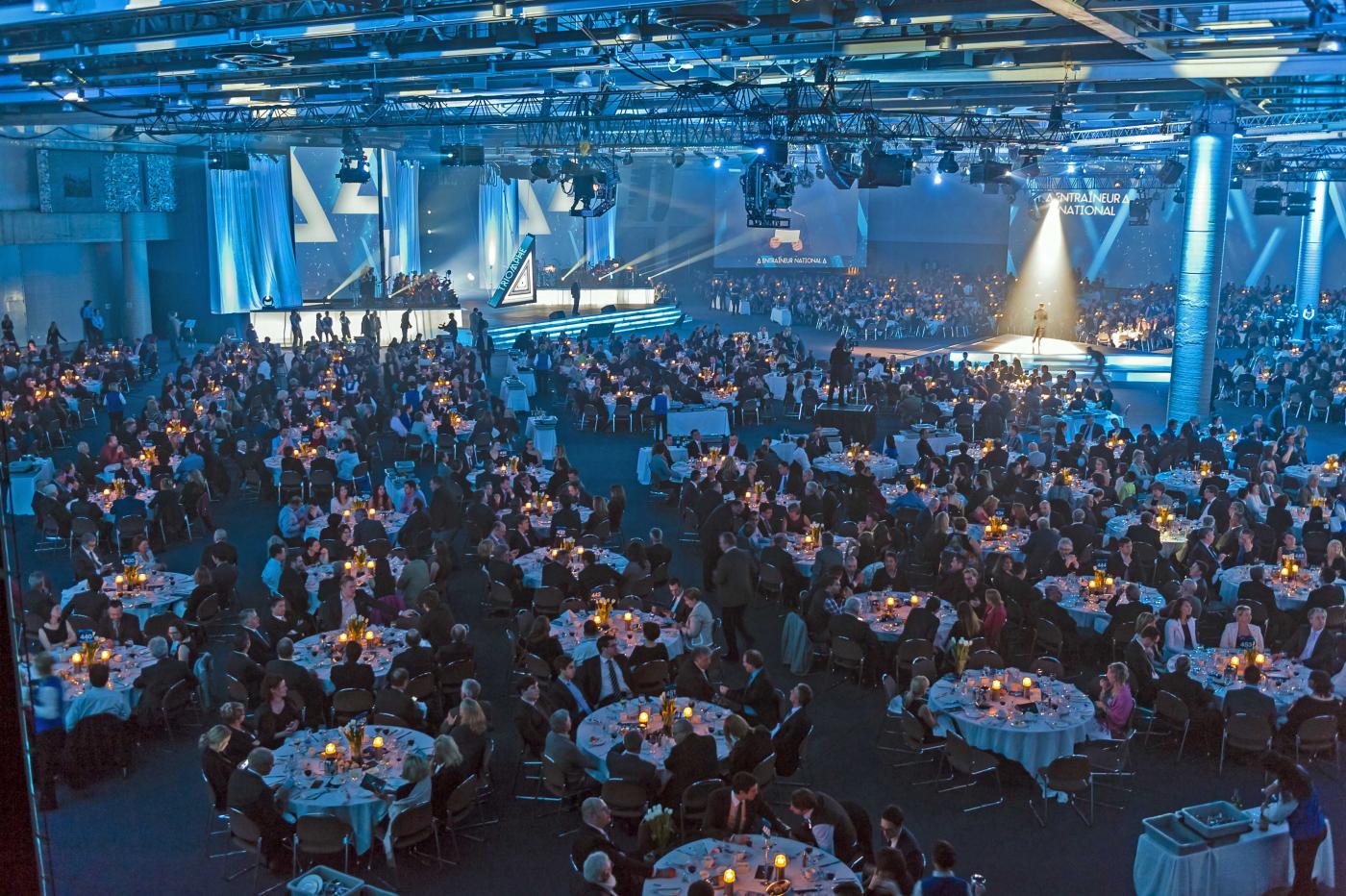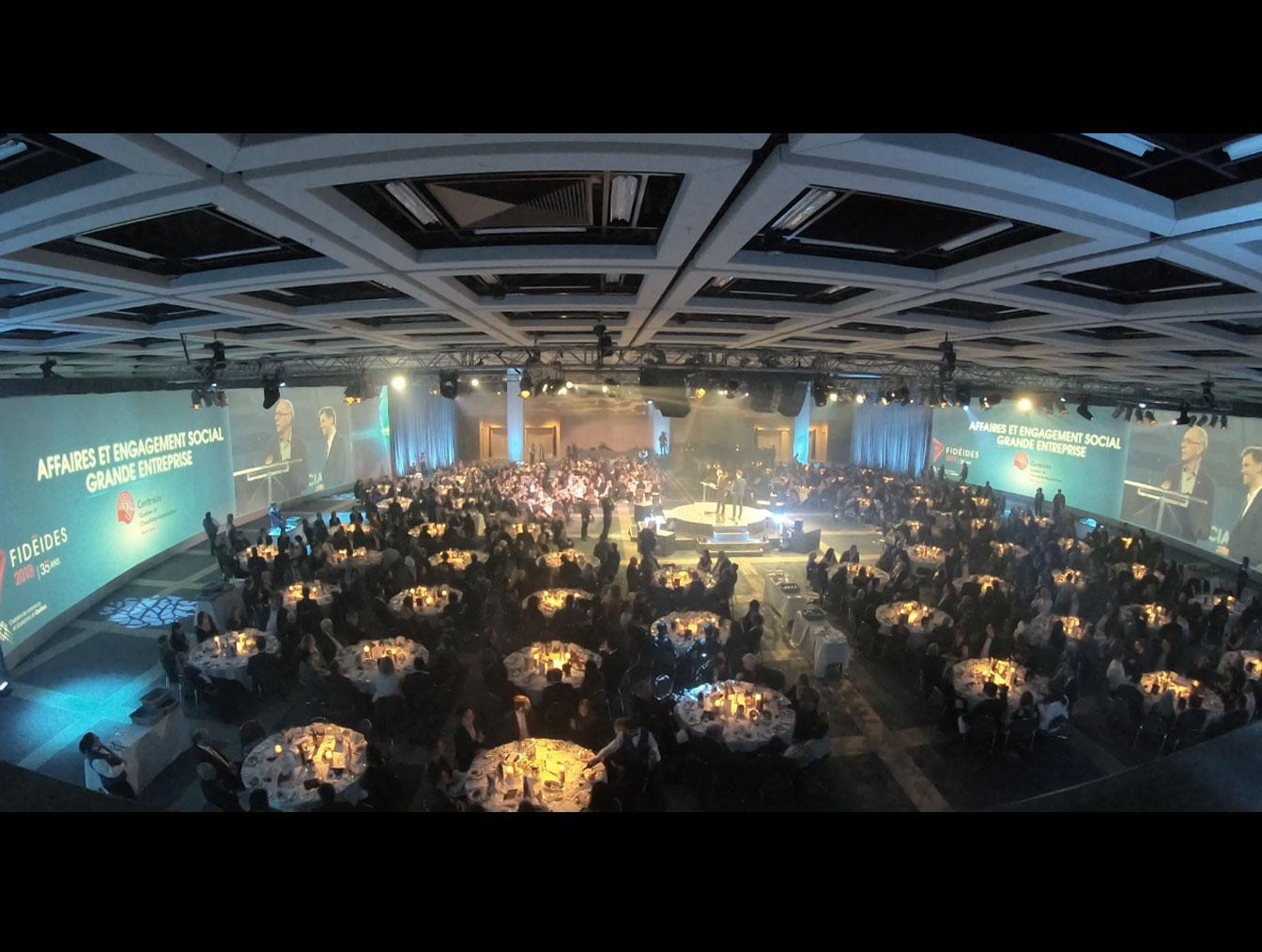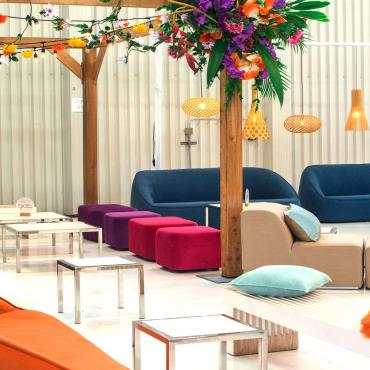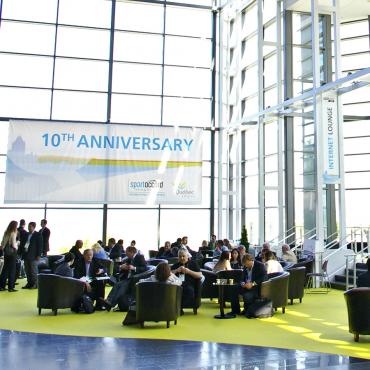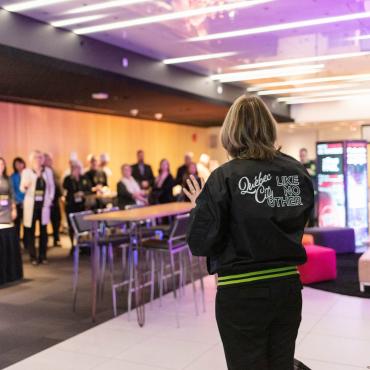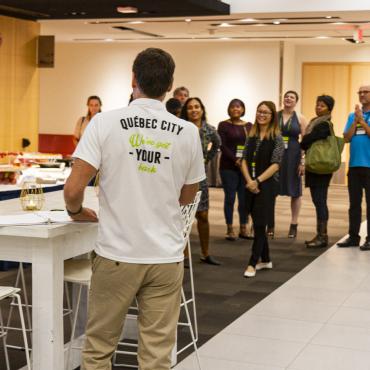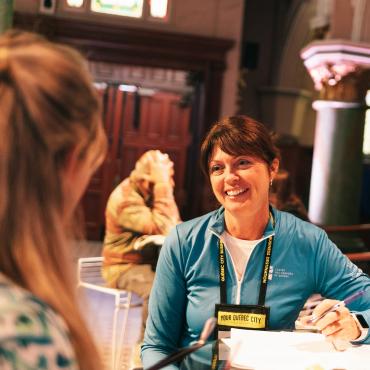How to boost attendee engagement with new event concepts
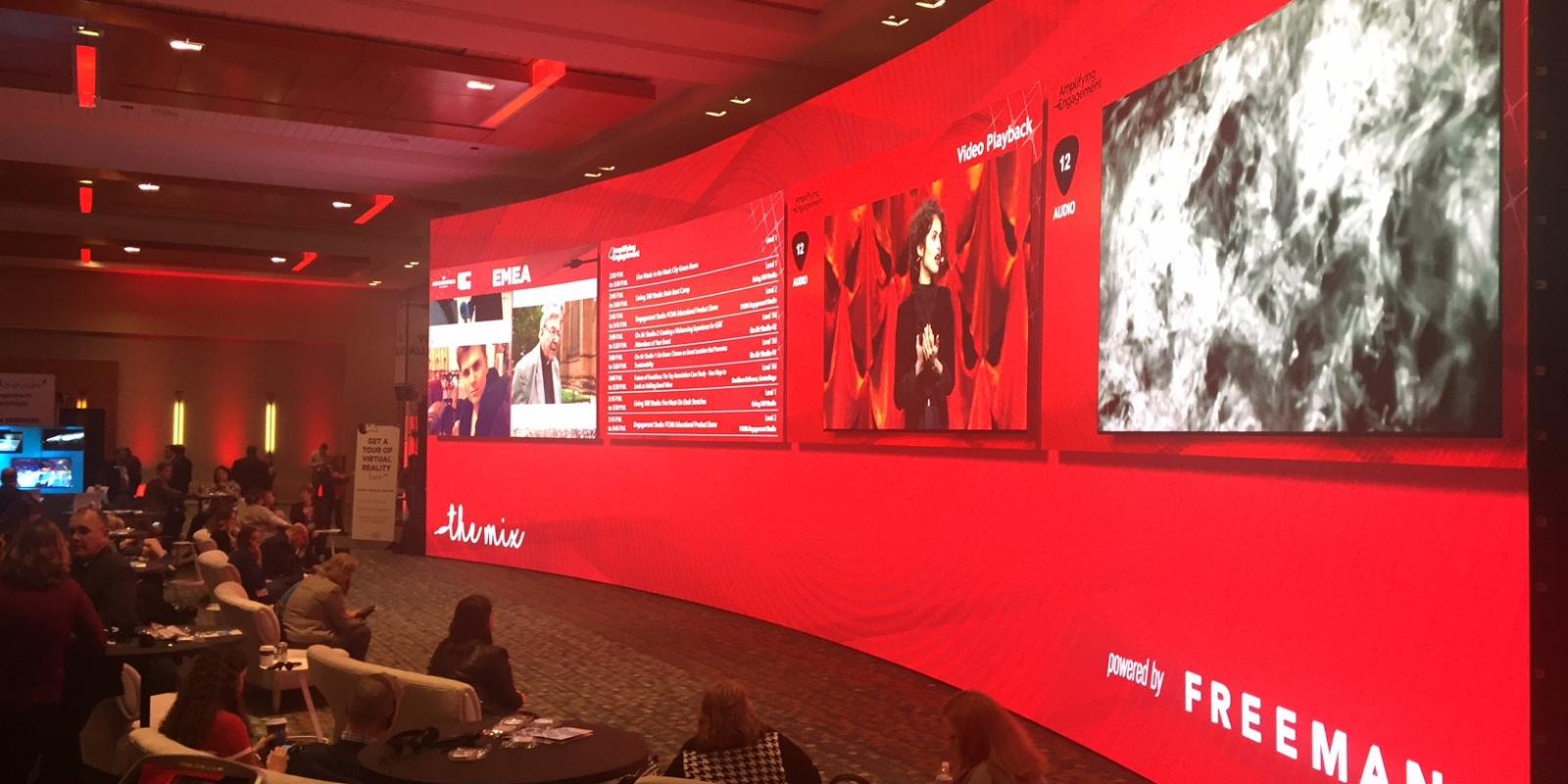
“Generic events just don’t cut it anymore. Gone are the days when event attendees were simply spectators. Nowadays, delegates want to actively participate in the event. In other words, attendee engagement is the holy grail.” The question remains: how can planners create events that are fresh, engaging—and even inspiring—for long-lasting impact?
Interaction between speakers and delegates
Thanks to technology, interaction between event participants has never been easier. Real-time social media posts, videos, gamification and voting can completely change an event’s dynamic.
“For example, we recently organized an event at which the event program or the topic of a particular plenary session changed during the event based on votes from on-site attendees,” Mr. Dallaire said. “That makes for a very interactive experience. The content was adapted to what was truly on the minds of attendees, which in turn incited attendees to listen and participate more, and better appreciate the entire event.” Mr. Dallaire nevertheless pointed out that this type of on-the-fly content creation means that event planners and speakers have to be prepared for different scenarios—from both a topic and presentation standpoint.
It’s all about personalization
-
 Steve Deschesnes
Steve Deschesnes
Another big trend in event design is personalization. “Let’s say a company is holding an annual conference for employees and partners. Presenters must no longer talk about the brand’s overall values and successful milestones; rather, they need to clearly show the brand’s direct value for each type of attendee.”
Mr. Dallaire described how Freeman has created a concept called the Mix where lounge areas are created within the event where participants visit at the time of their choice and choose the presentation they would like to see or hear. “This is especially helpful for attendees who are pulled in different directions during the event. The content can be enjoyed based on their schedules as opposed to juggling multiple obligations or missing a talk altogether.”
One key aspect that planners should focus on is the events messaging. “In the past, the message was adapted to the medium. But now, the medium must be adapted to the message.” Mr. Dallaire stated. What this means is that event planners should blend different technologies with an event’s décor and entertainment to get a message across.
It’s all about combining auditory, visual and tactile sensory stimulation to create an almost theatrical performance.” Mr. Dallaire described. “This helps to add depth to the event’s substance.
Multi-sensory presentations
-
 Frédéric Dallaire
Frédéric Dallaire
“Who wants a bland slide presentation with ho-hum background music? Event planners cannot address décor, AV, F&B and entertainment as separate entities anymore. Again, the goal is to create an immersive and harmonious atmosphere that stimulates all the senses and conveys the right information.”
Mr. Dallaire explained that the overarching experience will dictate just how much of a presentation’s content will be retained by attendees. A case in point: event planners could produce video teasers about the event’s program and incite social media followers to send in their questions before the event. During a speaker’s presentation, she could display the questions from social media on one screen and evocative images on another screen as the answers. The music played in the background could reference the topic at hand (say, “Where the Streets Have No Name” by U2 during a talk on the challenges of road infrastructure during an urban planning convention.
Or, a hot-ticket speaker, such as a company CEO or top researcher could be filmed live half-way around the world doing something momentous for the event and the feed viewed by hundreds of delegates at the Québec City Convention Centre while on-site performers make their way through the crowd to serve some themed snack or beverage.
“An event concept must be based on participant personas,” concluded Mr. Dallaire. “But with some creative thinking, the use of a mix of technologies, and brining different event suppliers together to work on a common concept will ensure that an event—and its program—remain etched in the minds of attendees for a long time to come.”

